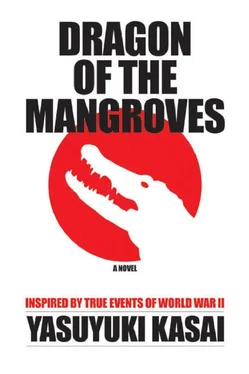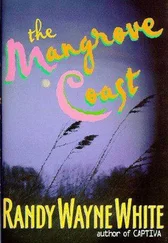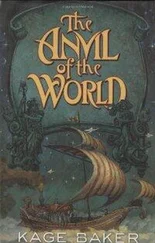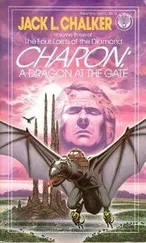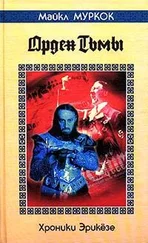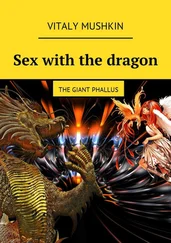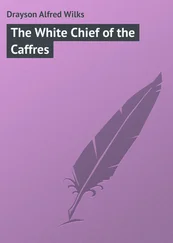As privates, their objections went unheeded. But they all knew they could be forced to wander through totally unknown mangroves all through the night.
“Shut up!” Tomita shouted. But somehow his eyes showed pleasure rather than anger. “Here is special news for your ears only. Don’t tell anyone else,”
Tomita whispered, which made the others lean forward. “Our troops will escape from the island within a couple of days.”
Kasuga watched Tada and Kayama open their mouths in unison. He wasn’t certain if they were merely surprised or delighted.
Tomita continued, “However, Sixth Company won’t take part in this withdrawal operation. Those simpletons nicely say they’ll stay behind and build up a guerilla front. We’ve known them for a long time. If things go wrong, they may keep us with them on this damned island. So it’s far better for us to stick with the Fifth, isn’t it? The company commander himself has gone recon. Of course, guys of the command section are making a frantic search for him now. Let’s help them and curry their favor.”
“Huh?” said Kayama, with a puzzled look.
“How many years have you worked under Binchoku? You might follow the example of that shit-face. Even if we can’t find him, at least we will know what route we should take.”
Tomita Squad set out quietly. Kasuga and the others descended a gentle slope in the jungle and came across a dense bamboo thicket. Now they stood at the foot of Yanthitgyi Hill 604.
Kasuga picked one of the grenades from his belt and checked its safety pin.
Then he dangled it from his neck to be able to throw it fast, in case of emergency.
Although Tomita said no enemies were there, some reconnaissance patrols might have advanced while they had stagnated in Yanthitgyi. He needed to keep his eyes wide open.
Originally, no rifles had been issued to them. Having lost the machine gun, they were now next to totally unarmed. Tada, the man with a sure nose for everything, had gotten his hands on a model thirty-eight 6.5-millimeter rifle from somewhere—maybe he hunted for it among the war dead. However, to see the rifle so smeared with mud and rust, everyone believed it ready for the scrap heap.
It did not look trustworthy. Other than that, only Tomita, the squad leader, had a government-issued semiautomatic pistol. Those were all of guns they had. And Kasuga had nothing but his three grenades.
Palm trees appeared in the bamboo thicket. When Kasuga realized, they were walking in the middle of a vast community of nipa palm. It might be a hinterland of mangrove. The air around them was damp, indicating that the sea was close.
Kasuga lost his breath many times. It was all he could do to keep up with the queue. They had thrown out their broken ninety-two HMG in Mountain Maeda when they had evacuated there. Kasuga had been released from the toil of the machine gun conveyance ever since. However, getting rid of the pain was another matter. Malaria, which he had developed on this island, might be attacking him again; he felt feverish. Even his steps were faltering now.
Salt-tolerant trees replaced the nipa palm which had hindered their trek with its sharp-edged leaves. The odor of the sea drifted toward them. They had apparently broken into the mangrove at last.
Big evergreen trees grew as far as Kasuga’s eyes could see. Each was supported by many prominent roots rising up from the ground. Layer upon layer of interwoven branches shut out almost all sunlight. It was quite a dark and damp place.
Innumerable vertical roots, like bamboo shoots, protruded from the mud of the ground, which turned into the bottom of a sea when the tide was high. It was hard to find a spot to step on next.
It reminded Kasuga of the land of the dead at first sight. But the natural vitality hanging over the area was dense and strong. Birdcalls mixed with the rustles of leaves in the breeze. On the ground, brightly colored crabs ran hurriedly, and sometimes mudskippers romped among them. Every so often, he saw a small snake of black and yellow coil around a branch decorated with glossy, thick leaves. Since it might be poisonous, Kasuga tensed up every time he had to pass one. But the most annoying nuisance was a large swarm of mosquitoes. They rushed not only to his exposed skin, but also into his mouth, nostrils, and ears.
Kasuga toppled over many times in the mud. He was completely terrorized to think that the safety of his grenade might come off by the force of impact.
This place was almost the far end of the earth. It was not likely that the enemy could advance in such an area. He couldn’t imagine a more inappropriate place for a war than this. He tucked the grenades into his haversack.
He continued to trip and slip on countless entangled roots and in soft bottom-less mud. Each time it consumed what little he had left of his physical power.
Even worse, the wound from the mortar shell in the Battle of Mountain
Maeda might have opened again. Kasuga found blood staining the new bandage he had wrapped around his right thigh that morning. The iron blade inside his flesh grated every time he took a step.
If he went on like this, he would run the risk of getting lost. He knew he must hold on until he could get treatment in a decent hospital in Taungup or Rangoon. Dropping out of the line would mean death when the troops evacuated the island. He kept walking on, breaking into a sweat.
Gradually, the water exuding from the mud increased and covered the whole ground with a murky liquid sufficient to reach their ankles. The odor of the sea became stronger, as well.
The trail they were walking on had turned into a creek threading through the woods. The water level often reached to Kasuga’s hip, and it irritated the gash of his shrapnel wound mercilessly. Every step he made betrayed him, causing him to sink deep into the mud. It got hard even for him to pull his foot up.
He didn’t have his own watch and couldn’t trace the setting of the sun under the thick green canopy, under which it was always dark, even during the day.
They had gone down Yanthitgyi Hill 604 about an hour before, though Kasuga wasn’t sure of the exact time. They had been walking in the damp areas ever since. Tomita, who had kept his pace without a hitch ahead of them, abruptly stopped in the middle of intertwining branches and pointed forward. “Maybe Myinkhon Creek is over there, men.”
Through the overlapping layers of greenery, Kasuga, Tada, and Kayama found a conspicuously broad creek. Everyone ran to the edge to get a better look.
About three hundred meters wide, muddy water flowed by slowly in front of their eyes. The opposite side seemed to be an unbroken belt of mangrove. Far above, they could see many peaks of the Arakan Mountains against the glorious orange sky. It was the mainland of Burma. It extended all the way to China and to their homeland further beyond.
Kasuga heard Kayama murmuring, “I want to go home.”
Tomita was reading the map. Kasuga was surprised to see that the map was no more than a shoddy sheet of straw paper, on which some wriggling lines had been scribbled with a pencil. Relying upon such a map, Tomita had broken through the maze of mangroves. Kasuga had a new admiration for his superb skill. Just then, Tomita raised his head and uttered a sharp alarm. “Leave the edge at once! An enemy is coming!”
The four immediately scurried back into the mangrove, almost a knee-jerk reaction. Pressing against the entangled roots of a big tree, Kasuga peered over his shoulder at the creek. The low-pitched hum of exhaust reached his ears, a gunboat appeared from his right, and the cleaved wave washed his legs.
It was a ragged barge, willy-nilly equipped with a field gun rather than a gunboat. It made everyone skeptical about the real state of the Royal Navy—supposedly matchless in the world, but even this barge was threatening for the Japanese Army now. A machine gun was installed on the side, and a white sailor was standing behind the gun. Clearly, enemies were ready to check any crossing operations planned by Japanese forces.
Читать дальше
